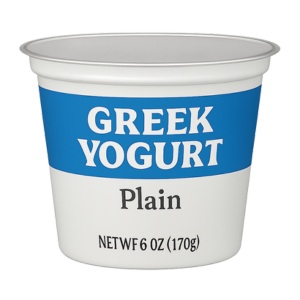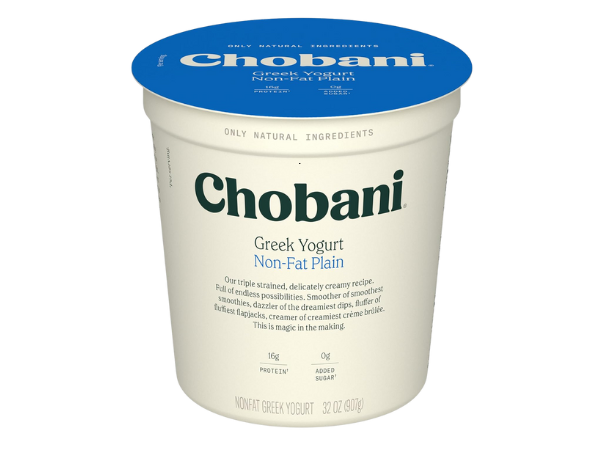
Greek Yogurt
Caffeine
None
Note: Values are for plain, unsweetened nonfat Greek yogurt. Flavored varieties (coffee, mocha, chocolate) may contain caffeine — always check the label for exact amounts.
| Attribute | Value |
|---|---|
| Caffeine Level | None |
| Serving Size | 6 fl oz |
| Caffeine | None |
| Calories | 90 kcal |
| Sugar | 6 g |
| Caffeine per fl oz | 0 mg/fl oz |
Greek yogurt is a thick, creamy dairy product made by straining regular yogurt to remove much of its whey. This process concentrates the protein, reduces the sugar, and gives it a rich texture.
What is Greek Yogurt?
Greek yogurt starts as regular yogurt, made by fermenting milk with live bacterial cultures. It is then strained to remove excess liquid whey, resulting in a denser, creamier product with higher protein content and lower lactose.
- Origin – Traditional in Mediterranean and Middle Eastern diets.
- Texture – Thick and creamy due to straining.
- Protein Content – Higher than regular yogurt.
- Flavor – Tangy and slightly sour.
- Versatility – Eaten plain, flavored, or used in cooking.
This combination of qualities makes Greek yogurt a popular choice for both healthy snacking and culinary use.
Does Greek Yogurt Contain Caffeine?
Plain Greek yogurt made from milk and live cultures is naturally caffeine‑free. However, certain flavored varieties may contain caffeine if they include ingredients like coffee, mocha, or chocolate.
- Plain Greek Yogurt – 0 mg caffeine.
- Fruit‑Flavored Greek Yogurt – Typically 0 mg caffeine.
- Coffee‑Flavored Greek Yogurt – May contain 10–30 mg caffeine.
- Chocolate‑Flavored Greek Yogurt – May contain 2–10 mg caffeine.
- Check Labels – Always verify caffeine content on packaging.
For those avoiding caffeine, sticking to plain or fruit‑flavored Greek yogurt is the safest choice.

Calories and Sugar
Greek yogurt’s calorie and sugar content vary depending on fat level and added sweeteners. Plain, unsweetened varieties are the lowest in sugar.
- Nonfat Plain (6 oz) – 90 kcal, 6 g sugar.
- Low‑Fat Plain (6 oz) – 120 kcal, 6 g sugar.
- Whole Milk Plain (6 oz) – 150 kcal, 6 g sugar.
- Flavored Nonfat (6 oz) – 120–150 kcal, 12–18 g sugar.
- Flavored Whole Milk (6 oz) – 160–200 kcal, 12–18 g sugar.
Choosing plain Greek yogurt and adding fresh fruit or honey allows you to control sugar intake.
Ingredients Overview
The ingredient list for plain Greek yogurt is short and simple, but flavored varieties add more components.
- Milk – Whole, low‑fat, or nonfat.
- Live Cultures – Probiotic bacteria like Lactobacillus bulgaricus and Streptococcus thermophilus.
- Sweeteners – Sugar, honey, or alternative sweeteners in flavored types.
- Flavorings – Fruit puree, vanilla, coffee, or cocoa.
- Stabilizers – Sometimes added for texture in commercial brands.
The simplicity of plain Greek yogurt makes it a clean, nutrient‑rich food choice.
Nutritional Facts at a Glance (Plain, Nonfat, 6 oz)
Plain Greek yogurt offers a high‑protein, low‑sugar profile with no caffeine, making it a versatile and healthy option.
- Calories – 90 kcal
- Total Fat – 0 g
- Sodium – 50 mg
- Total Carbohydrates – 6 g
- Sugars – 6 g
- Protein – 15–17 g
- Caffeine – 0 mg
This nutrient profile makes Greek yogurt an excellent choice for breakfast, snacks, or as a protein boost in recipes — without contributing to your daily caffeine intake.
